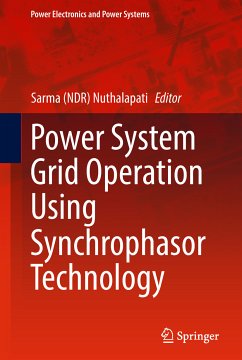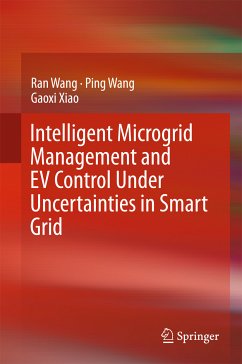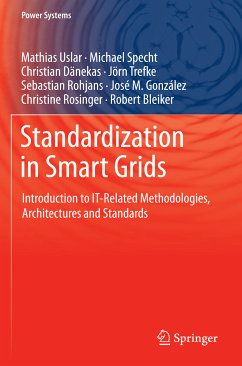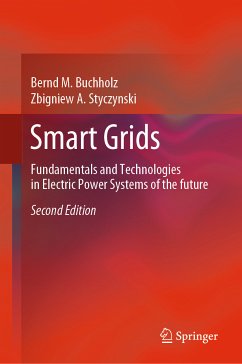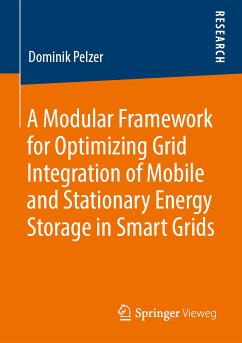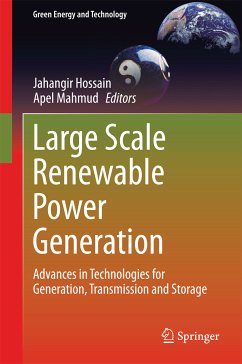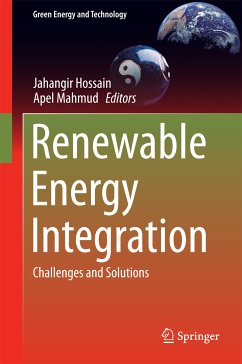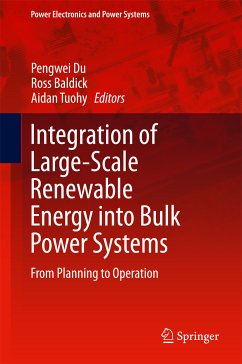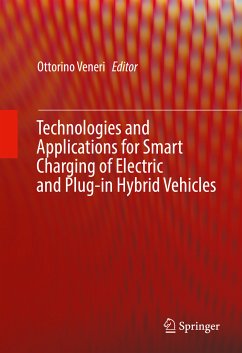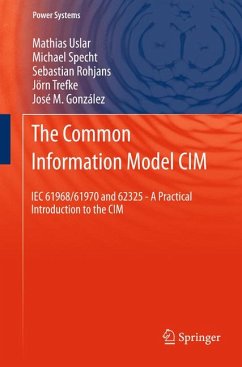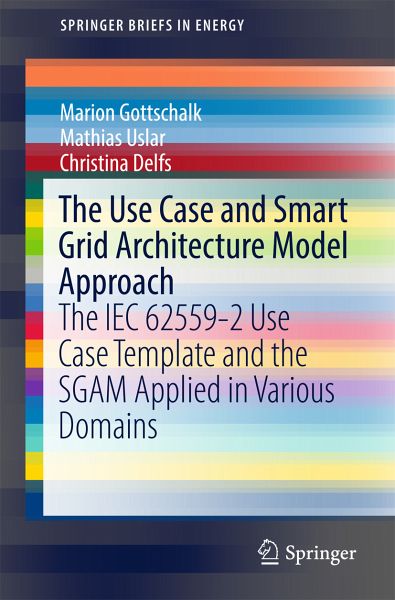
The Use Case and Smart Grid Architecture Model Approach (eBook, PDF)
The IEC 62559-2 Use Case Template and the SGAM applied in various domains
Versandkostenfrei!
Sofort per Download lieferbar
44,95 €
inkl. MwSt.
Weitere Ausgaben:

PAYBACK Punkte
22 °P sammeln!
This book introduces readers to the fundamentals of the IEC 62559 Use Case Methodology, explains how it is related to the Smart Grid Architecture Model (SGAM), and details how a holistic view for both architecture and requirements engineering can be achieved. It describes a standardized and holistic approach to requirements engineering for smart grid projects based on work conducted in the context of the EU M/490 standardization mandate. Over the last years, this method has been established in Europe as the basic building block of requirements engineering in the utilities sector.The authors pr...
This book introduces readers to the fundamentals of the IEC 62559 Use Case Methodology, explains how it is related to the Smart Grid Architecture Model (SGAM), and details how a holistic view for both architecture and requirements engineering can be achieved. It describes a standardized and holistic approach to requirements engineering for smart grid projects based on work conducted in the context of the EU M/490 standardization mandate. Over the last years, this method has been established in Europe as the basic building block of requirements engineering in the utilities sector.
The authors present a canonical, structured approach that users can apply to the Use Case Methodology and the SGAM, as well as open tools for this purpose. The application in various domains outside the smart grid is also discussed, as it can be used for critical infrastructures or system-of-systems domains like Industrie 4.0 and Ambient Assisted Living. Accordingly, the book also presents various architecture models for different fields of application, like EMAM, SCIAM, RAMI 4.0, and MAF.
The authors present a canonical, structured approach that users can apply to the Use Case Methodology and the SGAM, as well as open tools for this purpose. The application in various domains outside the smart grid is also discussed, as it can be used for critical infrastructures or system-of-systems domains like Industrie 4.0 and Ambient Assisted Living. Accordingly, the book also presents various architecture models for different fields of application, like EMAM, SCIAM, RAMI 4.0, and MAF.
Dieser Download kann aus rechtlichen Gründen nur mit Rechnungsadresse in A, B, BG, CY, CZ, D, DK, EW, E, FIN, F, GR, HR, H, IRL, I, LT, L, LR, M, NL, PL, P, R, S, SLO, SK ausgeliefert werden.



